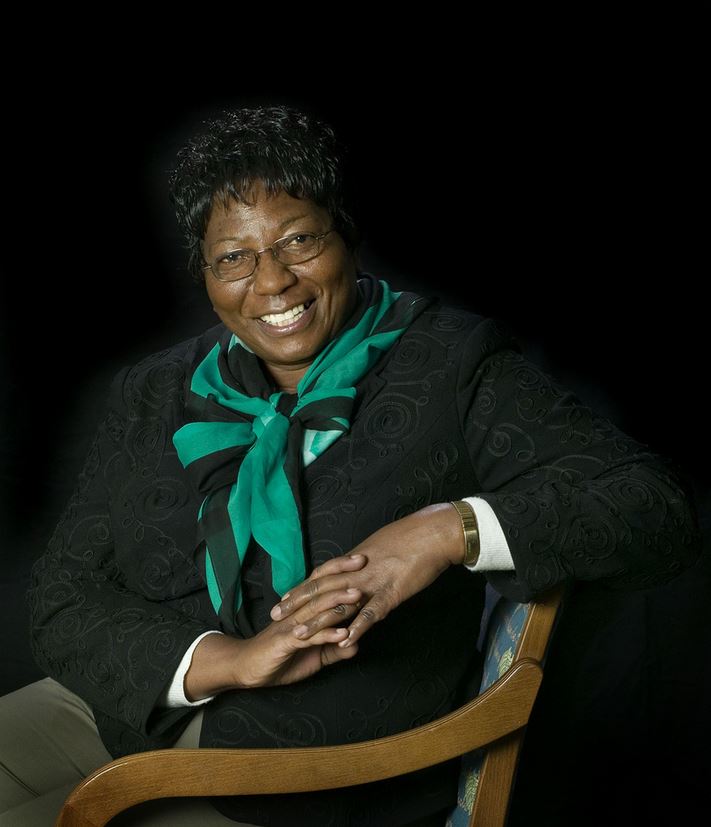With US support, Malawi is leading the way on reducing maternal mortality
 Nurse Melifa Mphasa listens to the pregnant belly of her patient in the labor ward at Bwalia 'Bottom' Hospital in Lilongwe, Malawi. Photo: Abbie Trayler-Smith / Oxfam
Nurse Melifa Mphasa listens to the pregnant belly of her patient in the labor ward at Bwalia 'Bottom' Hospital in Lilongwe, Malawi. Photo: Abbie Trayler-Smith / Oxfam
A guest post by Dorothy Ngoma, Principal Secretary and National Coordinator of Malawi’s Presidential Initiative for Maternal Health and Safe Motherhood.
Dorothy Ngoma is the Principal Secretary and National Coordinator of Malawi’s Presidential Initiative for Maternal Health and Safe Motherhood.

Pregnancy has always been a cause for worry for the people of Malawi. Half of girls will be married by the time they turn 18 and they are bearing children much too soon. Most of the population lives in very remote areas, where access to quality maternal health care services requires travelling long distances. Cultural beliefs and practices, along with the country’s poverty and development challenges, meant many women gave birth at home, without the benefits of modern medicine. As a result Malawi suffers from one of the highest maternal mortality rates in the world.
But the people have something to smile about, because we Malawians are changing this.
When Joyce Banda became our first female president in 2012, reducing the maternal mortality rate and improving the health of children and mothers became a top priority. Power lies in the rural areas in Malawi, in the authority of chiefs, churches, and mosques. So Banda has so far enlisted more than 12,000 chiefs in the country to take the lead in changing attitudes and perceptions at the grassroots level.
Our efforts to change harmful traditions from the ground up are getting results. Educating and giving incentives to chiefs, along with the construction of new maternal health facilities in rural areas, have begun to reduce the number of home births using unskilled traditional birth attendants. A new system of trained attendants, called “secret women,” report to chiefs and help the family to get ready for birth and to access health services, while being sensitive to cultural norms such as discouragement of sharing details about a pregnancy. We have also constructed waiting homes so that pregnant women can be closer to proper care when it is time to deliver. As a result of this initiative, in two years we have managed to reduce maternal mortality rates significantly, from 675 per 100,000 live births to 460.
During one of our mobilization meetings for chiefs at a Maternity Unit in the Kasungu District of central Malawi, I recently met a young woman that become pregnant at 15 years old, and was being forced by her family to drop out of school and get married. Through this new system, she had been referred by a “secret woman” to Senior Chief Kaomba of the Chewa tribe and then to a trained midwife, who informed her that a traditional birth attendant wouldn’t be able to safely deliver the baby. The girl was then able to travel to the maternal waiting home before the birth. Having access to quality care during the pregnancy and childbirth allowed her baby to be born safely. Senior Chief Kaomba was also able to intervene on the girl’s behalf so that she could stay in school. Through the support of her family, school and community, she has been able to breast feed and both mother and child are thriving.
In cases like these, unless you are part of the community and have their trust, it is very difficult to intervene. International organizations have brilliant ideas. They have money and technical know-how, but these issues are very intimate and success lies at the local level. That is why international organizations must have strong partnerships with us if programs like these are to take root and be effective.
The international community has been present in Malawi for over half a century, but it was when our president engaged the chiefs in this bottom-up approach that we began to see change. After working for more than 30 years as a nurse and lobbying on behalf of nurses in Malawi, I can tell you that we have no need for quick fixes and solutions developed outside of our country.
The success we have achieved in our program to reduce maternal mortality has come from starting at and being focused on the ground level, and by giving due respect to the role of community leaders. The U.S. government and international donors should increase the amount of funding that goes directly to governments and civil society groups in developing countries to continue this important work. Also importantly, Malawi’s leaders at all levels should be making decisions to guide these foreign assistance funds given to improve Malawi’s health systems. Recognizing the seminal role of local leaders is the only way to build lasting, far-reaching, and sustainable change.
My dream for our women – and our whole country – is that no one dies giving birth and young girls are going to school rather than into early marriage and pregnancies. Engaging meaningfully with local leaders to champion these changes is the key to achieving that dream. We need solutions originally grown from within our country, from the ground up.
The support of the American public as Malawi works to improve health care and access across our country is also essential. Partner with us. Support locally-led efforts. We are on our way.